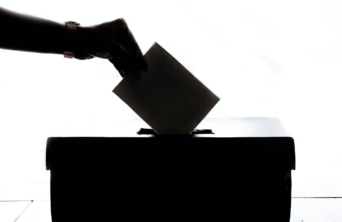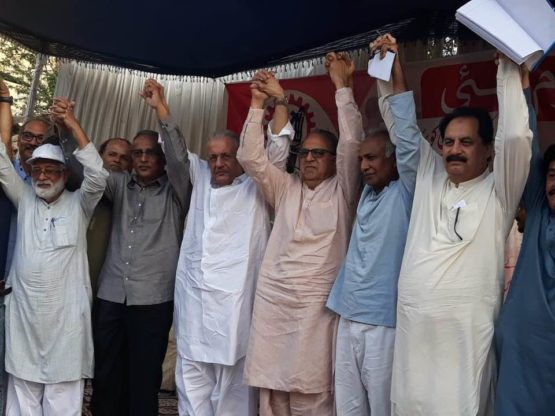- About
- Topics
- Picks
- Audio
- Story
- In-Depth
- Opinion
- News
- Donate
-
Signup for our newsletterOur Editors' Best Picks.Send
Read, Debate: Engage.

| topic: | Election |
|---|---|
| located: | Pakistan |
| editor: | Shadi Khan Saif |
Millions of Pakistanis could soon cast their votes to choose their future government, the authorities have hinted. The new government will face many challenges as Pakistan's fragile economy is on borrowed time with a costly lifeline of international lenders.
How the government comes into effect is a challenge in itself, as Pakistan's track record of democratic transitions of power from one elected government to another has been marred by interventions by deep state forces.
Former prime minister and candidate for the upcoming elections Imran Khan, popular among Pakistanis for his anti-establishment ideologies, was arrested in May by parliamentary forces over money laundering allegations, which he denies. Khan's supporters responded to his arrest with protests that turned violent.
There are doubts about whether the government will hold elections due to the unpredictable political climate and the growing opposition to the army-backed ruling alliance. But if it takes place, the election will be crucial if the country is to rectify its troubled democratic and economic history.
Ensuring a fair election is vital for the democratic progress of Pakistan. The country has been under military dictatorships for over half of its history, and even during democratic periods, there have been issues with inequality and limitations on freedom of expression.
The highest midterm election turnout in Pakistan for four decades was in 2018, in which fifty-three per cent of eligible voters participated. Pakistan must meet and exceed this number so that a genuinely representative leadership can emerge.
Latest estimates by the country's Independent Election Commission (IEC) suggest the number of registered voters is around 125 million. Some individuals might encounter barriers to voting, such as the urban-rural divide, gender-based inequalities, or complications with the population census.
Deployment of technology such as voter identity verification, accessible voting machines and automated counting could bolster transparency at the election.
In a democracy, every vote counts, especially in the testing times that Pakistan is facing.
The IEC, being an independent organisation, should have the freedom and power to establish efficient voting procedures for all levels of representative government. Non-partisan entities like the judiciary and media can facilitate the IEC's independent oversight.
It is essential to ensure that politicians do not engage in activities that could give them an unfair advantage, such as infringing on constituencies. Proper checks and balances need to be in place to ensure a fair and just political system.
Making sure that elections are fair is a continuous effort that is constantly developing and getting better over time with practice. Nevertheless, the fundamental goal is guaranteeing everyone the same voting opportunity.
Photo by Element5 Digital.
